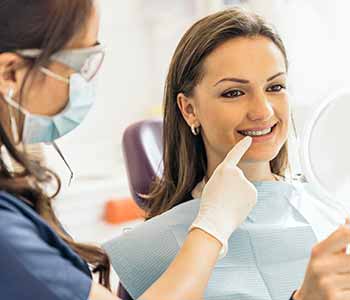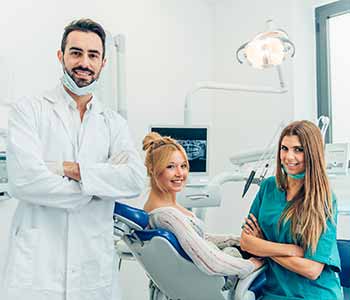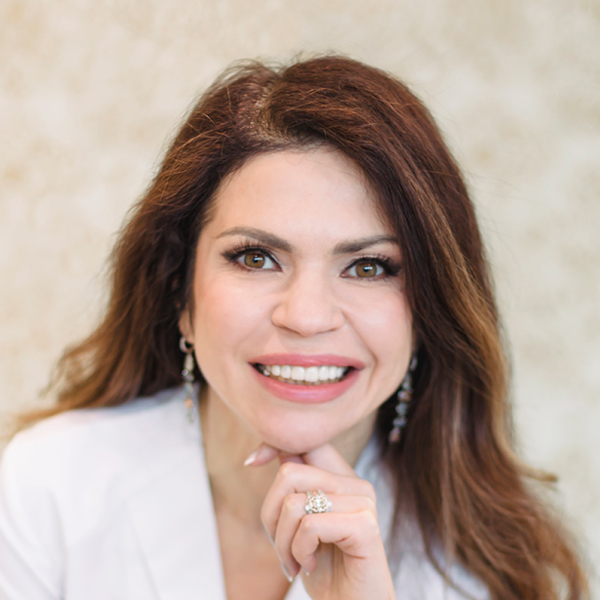

30
Jul
Glen Allen, VA practice uses airway dentistry to address common breathing problems

Sleep apnea, mouth breathing, and problems with the temporomandibular joint (TMJ) are issues that affect the ability to eat, sleep, and breathe. A single one can create many effects. Dr. Olivia Hart and the professional team at Virginia Biological Dentistry in Glen Allen, VA are able to identify and treat these conditions and many others. By understanding the airway and its effects on dentistry, Dr. Hart can offer treatments to keep your mouth-body connection strong.
Whatever enters your mouth, good or bad, has an impact on your overall health. Your mouth is the portal to the rest of the body. As such, when there are problems with the mouth or throat, the consequences can appear throughout the body. Breathing and airway issues can be difficult to diagnose since most people are not actually aware of the underlying cause, only the symptoms. A dentist has more opportunities to check your mouth and airway than many general physicians do. A highly trained dentist such as Dr. Hart can help you identify and diagnose airway issues that may cause additional health issues. Mouth breathing, snoring, and sleep apnea are common breathing problems that can be addressed with airway dentistry.
Mouth breathing
Babies naturally breathe through their noses. For various reasons, people switch to breathing through their mouths. This change can cause a number of dental problems. When breathing, oxygen is absorbed during the exhale. Breathing through the nose allows for a longer, slower exhale meaning oxygen absorbed more effectively. Mouth breathing can contribute to issues such as dryness of the mouth and throat, gingivitis, degradation of tooth enamel, and problems with the tonsils. Dry mouth changes the pH of the saliva increasing the risk of cavities.
REQUEST AN APPOINTMENT
Snoring

Snoring is the sound heard when air cannot move freely through your nose and throat as you sleep. When the air does not move freely, the surrounding tissues vibrate to create rumbling and snorting sounds. For some patients, a cold, allergies, or environmental issues can cause snoring. This happens occasionally and is normal. However, chronic snoring is not normal and may be a sign of a larger issue. Snoring may be due to excess floppy nasal or throat tissue blocking the airway. It may also be a symptom of sleep apnea.
Sleep apnea
Patients with sleep apnea have one or more pauses in breathing when they are asleep. These breaks may last just a few seconds or a few minutes. The cycle of pauses can occur multiple times per hour. Because of the breaks, the individual does not get enough oxygen. The body is forced to work harder to get air into the lungs. When the brain senses the pauses in breath, it sends out a rush of adrenaline. When he or she catches her breath again, there is typically a snort, choking, or snoring sound. Snoring is a common symptom of sleep apnea but snoring alone does not mean a patient has this disorder. Many patients are tired the next day from not having a restful night of sleep.
Sleep apnea affects men and women of all ages. Although less common, even children can have the disorder. Obstructive Sleep Apnea (OSA) is the most common form and is caused by an airway blockage often from the soft tissue collapsing during sleep. The blocked airway causes pauses in breathing during sleep. Risk factors for sleep apnea include:
- Overweight
- Large neck size
- Large tongue or tonsils
- Small jaw
- Nasal obstruction
- GERD
- Family history of sleep apnea
Treating breathing issues

Sleep apnea patients have different treatment options available. Continuous positive airway pressure (CPAP) therapy uses a machine to help the patient breathe while sleeping. This machine increases air pressure in the throat to prevent the airway from collapsing while breathing. Custom oral appliances which are similar to mouth guards are also commonly used to help patients breathe easier during sleep. Oral appliances are used by patients with snoring issues, sleep apnea, and TMD. Worn while sleeping, an oral appliance pushes the jaw forward to keep the airway open.
The goal of airway dentistry is to restore nasal breathing. Dr. Hart can check for underlying structural issues and will work with you to find an appropriate treatment plan to help you breathe easier.
Contact Virginia Biological Dentistry to schedule your appointment with Dr. Hart. Call (804) 381-6238.










